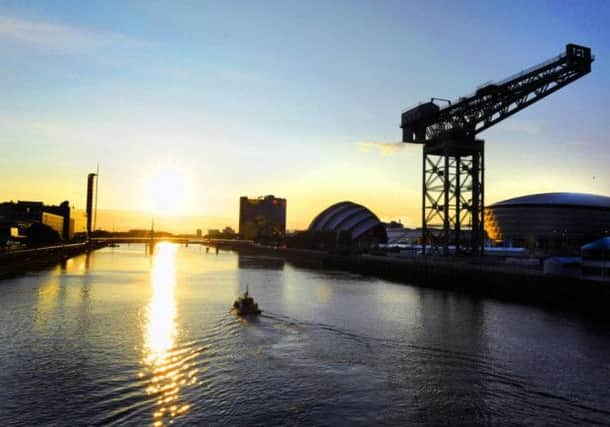Scottish cloud computing case study: Glasgow City Council


The City Council works with many public and private partners to raise the profile of the city and make it an attractive place to live, work and visit.
In January 2013, Glasgow City Council won a competition hosted by the Technology Strategy Board and were awarded £24M ($38M) funding to create a UK reference site, demonstrating smart city technology at scale.
Advertisement
Hide AdAdvertisement
Hide AdThe central tenet of the bid was to create a platform that would capture big data generated by city activity and make it available to everyone. In human terms the goal was the creation of an ecosystem where people are much better informed about their city and inherently more involved in its decisions and direction.
Sharing data about the city first requires capturing and cataloguing it. Colin Birchenall, Lead Architect for the project outlines the team’s requirement, “We want to demonstrate what happens when all non-sensitive and non-personal information across the city is ‘open by default’ and freely shared and distributed across the city. We soon realised we needed more than just an online data catalogue - it’s a big data challenge. To make this possible we needed a powerful cloud-based storage, search and delivery solution to act as the backbone, and we chose Microsoft Azure because of its functionality, analytics and scalability.”
The emergence of sensors in everyday items offers new insights into city life. “Information can now be collected from a great many sources, for example, intelligent street lighting will help us to detect and record air quality, noise pollution and footfall all over the city,” explains Birchenall.
Getting the first few people to sign up to contribute their data was not an easy task and a critical mass was required to show the value that could be achieved. “It was a bit of a bartering process to begin with,” explains Birchenall, “We would show what information we could make available and discuss how much more powerful if would be when combined with other sources. Once people began to see the value they would get themselves, they became more willing.”
Access to this new and precise data will influence the future development of Glasgow’s communities.”
Making it easy for people to access information is key and Birchenall envisages the emergence of many apps to fulfil this requirement. “There are already several locally developed, third party apps in place, such as crowd-sourcing of traffic information and popular cycle routes which indicate the presence of cycle racks and unfriendly inclines. Using these types of apps will become part of everyday life.”
The goal is that Glasgow will be a pioneering city that others will follow. The work that Birchenall and his team are undertaking includes packaging up their processes, their solutions and their learnings, for other cities to follow.